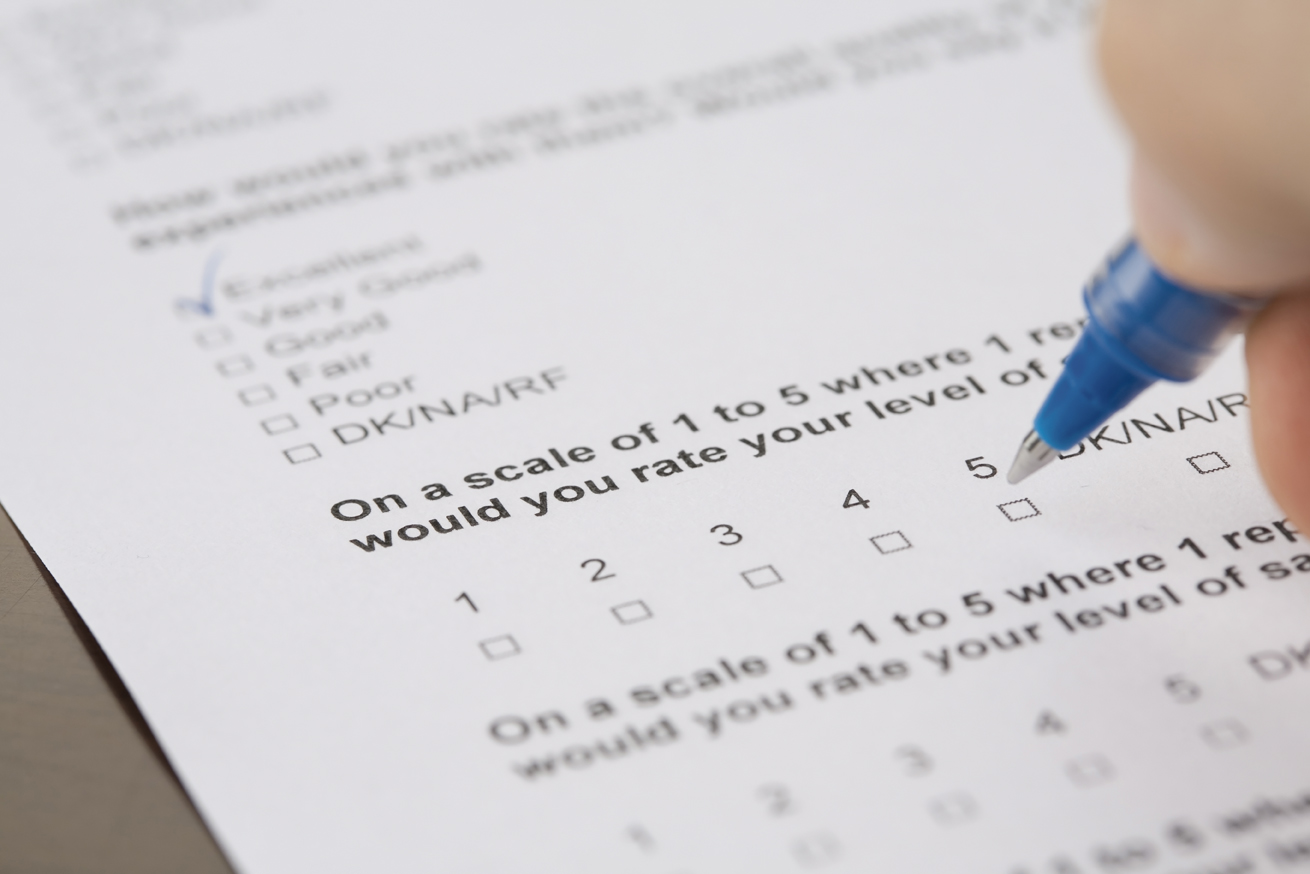Beyond Insurance
By F. Scott Addis, CPCU, CRA, CBWA, TRA
KNOWLEDGE IS POWER … START WITH AN ASSESSMENT
Sports psychologists and athletes use assessments to analyze and drive performance; risk management professionals should use similar tools
Where are you in the business of insurance and risk management? At this point in your career, are you able to pinpoint your strengths as well as opportunities for improvement? Are you able to assess specific attributes you need to reach a higher level of success?
If you have this ability, congratulations. If you are unsure, then this article is for you.
What is an assessment, and why is it so important to you? Assessment is the process of making an evaluation. It enables you to clearly understand where you are and where you want to go. If you possess the ability to assess, you can set appropriate goals and implement strategies that will have a direct impact on your performance.
If you possess the ability to assess, you can set appropriate goals and implement strategies that will have a direct impact on your performance.
To reach your full potential, you must know yourself: your God-given talents as well as your strengths and weaknesses. As Yogi Berra, the legendary baseball player and manager, once said, “If you don’t know where you’re going, you’ll end up someplace else.”
A continuous self-assessment process allows you to design and build lifelong skills. You also can gain the rewards of measuring and benchmarking your progress. The question is: how do you get from point A to point B? How do you go from good to great? The answer lies in your ability to constantly measure and assess your knowledge, skills, performance, and progress.
What should be measured? Anything that is a critical indicator of your progress toward achieving your aspirations.
Assessments used in sports
Before entering the insurance business, I had aspirations of becoming a sports psychologist. My thesis in college was titled “An Analysis of Athletes in Pressure Situations.” As a psychology major and student athlete at Princeton University, I wanted to understand the mental traits that contribute to success or failure in sports and in life—the inner game.
Today sports psychology is a growing field and one that regularly uses assessments to understand how athletes think, the emotions they experience, and the way they behave, especially in the heat of competition. A sports psychologist seeks clues to mental factors like motivation, confidence, intensity, focus, emotions, and relationships with teams and coaches. A sports psychologist also analyzes tools athletes use in their mental preparation, including goal setting, mental imagery, routines, self-talk, and breathing.
The sports psychologist also empowers the athlete to understand the importance of self-assessments. Numerous assessments are used in sports today, including:
- Athletic Coping Skills Inventory 28 (ACSI-28)—This is a highly validated assessment that measures an athlete’s psychological coping skills in areas such as adversity, concentration, mental preparation, coaching ability, and freedom from worry.
- Athletic Intelligence Quotient (AIQ)—This tool measures cognitive abilities that determine success and failure. The four main components of the AIQ are vision processing, memory, reaction time, and processing speed.
- EQi 2.0—Research is proving that emotional intelligence (EI) is a critical factor in predicting overall well-being and success, more so than IQ or even physical skills. The EQi 2.0 (Emotional Quotient Inventory) assessment enables the athlete to better understand how he or she perceives and expresses him- or herself, develops and maintains social relationships, and copes with challenges.
- DISC in Sport—The DISC model is a behavioral—not personality—assessment that measures four traits: (1) dominance, (2) influence, (3) steadiness, and (4) compliance. Three separate DISC profiles are available in sport: Athlete DISC, Coach DISC, and Sports Manager DISC.
- Process Communication Module (PCM)—An advanced, scientific research-based tool that enables athletes to enhance self-management and management of interpersonal relationships, even under stress. The PCM has a number of outcomes including improving team dynamics, conflict management, and overall enjoyment of an activity.
As sports psychologists and athletes are using assessments to analyze and drive performance, it seems logical that insurance and risk management professionals should use similar tools.
What follows is a brief overview of the progress that Beyond Insurance has made in creating diagnostic, performance-based assessments—the first step in taking action to maximize potential. Each of the following assessments enables you to evaluate and document your readiness, learning progress, skill acquisition, and mindset to empower you to build a roadmap for success.
Producer Growth Assessment
The Producer Growth Assessment (PGA) measures the Unrealized Growth Potential (UGP) of people who have business development responsibilities. The higher the UGP, the more room for improvement and growth. Each statement in the PGA correlates to the mastery of the following ten disciplines that have a direct impact on producer growth, productivity, and performance:
- Goal setting
- Persuasion and negotiation
- Value proposition
- Cross selling
- Referral network
- New business hit ratio
- Prospect research and qualification
- Sales roadmap
- Using social media to drive actionable results
- Priority management leading to work-life balance
The practice of these ten disciplines not only empowers the producer to grow his or her book of business, but also elevates competence, confidence, and knowledge, not to mention passion and purpose for the profession.
Organic Growth Assessment
Are you an agency principal or a leader with a keen focus on agency growth and profitability? If so, I suggest the Organic Growth Assessment (OGA). This assessment calculates the strengths of your organization as well as growth opportunities.
Organic growth is best defined as “growth from within,” the process of business expansion by increasing output and/or enhancing sales. Organic growth is not achieved through mergers or acquisitions. It occurs because of increased demand for your agency’s products, services, and solutions. As you know, organic growth is the top indicator of a dynamic, forward-thinking firm.
Beyond Insurance designed the OGA to help you identify the strengths of your enterprise as well as opportunities for improvement. This assessment is built on seven disciplines:
- Customer loyalty benchmarking
- Cross selling
- Stakeholder intimacy
- Prospect research and qualification
- Consultative sales
- Sales leadership
- Brand and brand management
The OGA not only calculates organizational performance but also includes a path to add rigor, processes, tools, and tactics to maximize growth and profitability. After an agency has completed the OGA, Beyond Insurance offers a complementary one-on-one session to interpret the results and design a strategy map to capture your UGP.
Sales Leadership Index
Are you responsible for leading your sales team? Do you possess the appropriate traits to inspire teams, motivate performance, and provide a clear direction as to where your agency is going?
The Sales Leadership Index (SLI) is a barometer of effective sales leadership. Based on the results of the SLI, you will be able to design and implement steps to enhance sales culture, attract talent, and significantly improve business development results.
The SLI offers a baseline of performance and guides you in setting the vision and direction that define sales leadership within your firm. The SLI consists of ten best practice disciplines:
- Sales culture
- Talent sourcing
- WHY we exist
- Unique abilities assessment
- Skill development
- Goal setting
- Prospecting strategy map
- Processes, tools, and tactics
- Prospect qualification
- Accountability
As the sales leader, you have the opportunity and responsibility to shape and guide the behaviors, values, actions, and outcomes of your business development team. It is imperative that you understand the characteristics of a best practices sales leader, as well as the necessity to lead with a playbook. Beyond Insurance has created a sales playbook that you can customize to fit your sales culture.
Assessments enable you to understand where you are and where you want to go. Being transparent and honest are essential components of any self-evaluation. They also serve as important steps in enabling you to set appropriate goals and implement strategies that have a direct impact on performance. You must know yourself to grow yourself. Knowledge is power; start with an assessment!
The author
Scott Addis, CPCU, CRA, CBWA, TRA, is chief executive officer of Beyond Insurance and is recognized as an industry leader, having been named a Philadelphia finalist for Inc. magazine’s “Entrepreneur of the Year” award as well as one of the “25 Most Innovative Agents in America.” Beyond Insurance is a consulting firm that offers leadership training, cultural transformation, and talent and tactical development for enlightened professionals who are looking to take their practice to the next level. Since 2007, the proven and repeatable processes of Beyond Insurance have transformed individuals and organizations as measured by enhanced organic growth, productivity, profitability, and value in the marketplace. To learn more, contact Scott at saddis@beyondinsurance.com.






